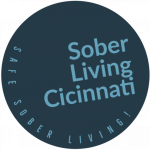Recovery from addiction has traditionally relied on therapy, medication, and peer support. While these core components remain essential, recent years have brought forward a wave of innovation in the field. New methods, technologies, and approaches are expanding the ways people can find healing and long-term success. These techniques are not about replacing the foundation of recovery, but about enhancing it.
Innovative recovery techniques can be particularly helpful for individuals who haven’t responded well to traditional programs or who are seeking more personalized, engaging forms of support. With the right fit, these new tools can boost motivation, deepen insight, and make the recovery journey more accessible.
Virtual and App-Based Recovery Support
Technology has transformed how people access recovery support. Virtual therapy, telehealth check-ins, and recovery apps are now widely used to help individuals stay connected, track progress, and receive real-time support.
Apps often offer features like goal tracking, daily reflections, virtual meetings, and community forums. This can be especially helpful for individuals who live in rural areas, work nontraditional hours, or prefer the privacy of online tools.
Telehealth allows for ongoing therapy and medical support without the need for in-person visits. These services are convenient, flexible, and can be a lifeline for people managing recovery in a busy or uncertain schedule.
The accessibility of digital support increases continuity of care and reduces the risk of relapse by keeping individuals engaged, no matter where they are.
Neurofeedback and Brain-Based Therapies
Neurofeedback, a form of biofeedback that monitors brainwave activity, is gaining attention as an innovative treatment for addiction and co-occurring mental health disorders. The goal is to help the brain self-regulate by identifying and adjusting abnormal patterns in real-time.
This therapy is non-invasive and often used alongside traditional counseling. It can help improve focus, reduce anxiety, stabilize mood, and support impulse control—common challenges in early recovery.
Other brain-based approaches include transcranial magnetic stimulation and cognitive training programs, which aim to improve cognitive function and emotional balance. While still under research, these methods are showing promise in supporting long-term healing.
Adventure and Nature-Based Recovery
For many, nature offers a powerful setting for healing. Outdoor recovery programs use activities like hiking, camping, rock climbing, and mindfulness in nature to build resilience, confidence, and connection.
These programs provide more than physical challenge—they offer opportunities for emotional growth and reflection. Being outdoors encourages individuals to unplug from stress and reconnect with themselves and the world around them.
Adventure-based therapy can be especially impactful for people who struggle with traditional talk therapy or who need a more hands-on, experiential approach. The sense of achievement and camaraderie that comes with outdoor recovery helps strengthen personal motivation and community bonds.
Mind-Body Integration and Somatic Therapies
Addiction doesn’t just affect the mind—it affects the body too. Mind-body therapies aim to heal both by helping individuals reconnect with physical sensations, breath, and movement. This can be especially helpful for those with trauma histories or chronic stress.
Somatic therapies include practices like yoga, breathwork, tai chi, and body-based psychotherapy. These methods help regulate the nervous system, reduce anxiety, and bring awareness to stored emotions that may be driving addictive behavior.
This form of healing emphasizes presence and physical self-awareness. Over time, it helps people feel more grounded and in control of their internal experience, which can reduce the urge to escape through substance use.
Creative Expression in Recovery
Art, music, writing, and other forms of creative expression are being used more frequently as therapeutic tools in recovery programs. These activities offer alternative ways to process emotions, especially for individuals who find it difficult to express themselves through words alone.
Creative expression can help release tension, reveal unconscious feelings, and build a sense of identity beyond addiction. It also provides a constructive outlet for dealing with stress or boredom, two common triggers for relapse.
Whether through structured art therapy sessions or informal creative workshops, these techniques support healing by inviting exploration, play, and self-discovery.
Peer-Led and Alternative Recovery Models
While 12-step programs remain a cornerstone of recovery for many, alternative models are growing in popularity. These include programs like SMART Recovery, Refuge Recovery, and LifeRing, which offer different philosophies and approaches.
Many of these programs are peer-led and emphasize self-empowerment, science-based techniques, or mindfulness. They can be more appealing to individuals who seek a secular or nontraditional path, or who feel that 12-step language doesn’t resonate with their personal values.
The expansion of these models has made recovery more inclusive and adaptable. The focus is no longer on one right way to get sober—but rather on finding what truly works for the individual.
Personalized and Holistic Recovery Plans
Modern recovery increasingly values personalization. Treatment plans are now more likely to include mental health care, trauma therapy, nutritional support, sleep hygiene, fitness routines, and even financial or vocational coaching.
This holistic view recognizes that recovery is about rebuilding an entire life, not just avoiding substances. By addressing physical health, emotional wellbeing, social relationships, and personal purpose, holistic programs give people the best chance at lasting success.
Personalization also means taking into account cultural background, gender identity, past experiences, and learning styles. This individualized care creates deeper trust and more meaningful progress.
Integrating Innovation with Proven Methods
The best results often come from combining innovative techniques with proven approaches like therapy, support groups, and medication-assisted treatment. Innovation doesn’t mean abandoning tradition—it means enhancing it with new insights, tools, and options.
As research continues, many of these new techniques will become more widely available and better understood. What’s most important is finding an approach that fits your needs, feels supportive, and helps you stay engaged in your recovery. Call us today at 855-675-1892.













